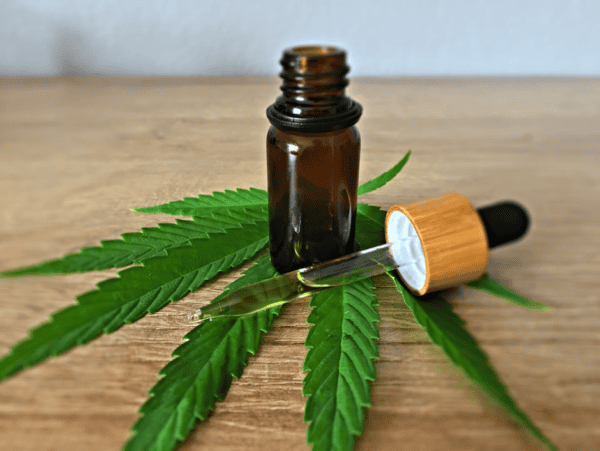The world of cannabis and hemp-based products is quickly changing with a multitude of cannabinoids available, each with their unique properties and effects. Among these, THC, CBD, and HHC (Hexahydrocannabinol) are the most popularly researched cannabinoids that offer multiple benefits. Knowing how to distinguish between these compounds is essential for the consumers who wish to make smart choices on what to use. This blog post covers the chemical structure, effects, legal status and uses of HHC, CBD and THC.

Understanding the Cannabinoids
1. THC (Tetrahydrocannabinol):
THC is by far the most famous cannabinoid because of its psychoactive properties that result in “high” feeling people experience when using cannabis. It binds to endocannabinoid system in body particularly CB1 receptors in brain which affects mood, perception and cognition.
THC is used both for medicinal and recreational purposes. Medicinally it can be used to relieve pain, stimulate appetite or reduce nausea but it also has side effects such as anxiety and short-term memory loss.
2. CBD (Cannabidiol):
CBD doesn’t have any psychoactive effect like THC making it an attractive choice for those who are looking for potential medical uses of cannabinoids without getting high. Unlike THC, CBD interacts with endocannabinoid system differently by primarily influencing CB2 receptors found all over body which may help in managing inflammation, pain or anxiety. CBD is also being studied for its potential to treat different conditions such as epilepsy, anxiety disorders or chronic pain.
3. HHC (Hexahydrocannabinol):
HHC is a hydrogenated form of THC produced by adding hydrogen molecules to THC through a process called hydrogenation which is similar to turning vegetable oil into margarine. Resulting cannabinoid is reported to be more stable and longer lasting than THC itself. It’s said that HHC carts provides similar effects like THC including euphoria and relaxation but with potentially lower risk of anxiety so it’s still new and less researched compared to THC and CBD therefore its full range of effects and potential medical benefits are still being explored.
Legal Status and Accessibility

THC:
The legal status of THCs differs from country to country including various states in USA where it’s legal both medicinally or recreationally despite being a Schedule I drug at federal level under Controlled Substances Act.
CBD:
CBD derived from hemp with <0.3%THC was made federally legal by 2018 Farm Bill while CBD derived from marijuana remains subject to state laws due to marijuana being federally illegal.
HHC:
It’s difficult determining HHC’s legal status since it’s usually derived from hemp thus theoretically should be federally legal under 2018 Farm Bill however its synthetic nature might pose challenges as FDA has not approved it yet.
Uses and Applications
THC:
THC has very broad applications both recreational as well as medicinal uses since it has psychoactive effects that can be enjoyed while it can also treat conditions such as chronic pain glaucoma insomnia etc.
CBD:
CBD lacks psychoactive effect but finds many uses in improving health condition without intoxicating effect hence commonly present in oils tinctures lotions edibles that provide relief from pain inflammation anxiety etc., besides also being investigated for role in treatment of different medical conditions.
HHC:
HHC is typically sold as a non-illicit alternative to THC promising similar psychoactive experiences; this makes up some of the content found in vapes gummies oils etc., there are no detailed benefits documented for HHC considering how new it is compared with established ones like CBD/THC.
Delving deeper into the specifics of HHC,CBD,and THCs
1.Pharmacological Effects & Body Interaction:
THC:
CB1 receptor affinity accounts for psychological impacts experienced due to THC ,a substance found within the brain affecting pleasure,memory,cognition,movement,sensory&time perception,motility,and sensory perception.THC additionally targets CB2 receptors albeit at much lesser intensity thereby giving rise to its anti-inflammatory,pain-relieving properties too.
CBD:
How exactly cannabidiol works on the endocannabinoid system is quite complicated since there’s no direct binding on either CB1 or CB2 receptors but only indirect influence.Additionally,it stops certain enzymes breaking down endocannabinoids inside human body thus increasing levels.Apart from interacting with non-cannabinoid receptors,CBD interacts with ion channels thereby providing anti-inflammatory,analgesic,&anti-anxiety activities.
HHC:
Similarity between HHC & CB1/CB2 receptor interaction exists although not so intense when compared with what happens during binding between them & Δ9-THC.This relatively weak affinity could explain why certain users claim mild psychoactive effects associated with usage contrasted against Δ9-THC.Scientifically,beyond these two mentioned receptors/systems,the overall picture remains under-researched.
2. Side Effects and Safety Considerations:
THC:
While THC is efficient for many therapeutic purposes, it can produce adverse side effects like dry mouth, red eyes, memory problems, increased heart rate, and coordination issues. It may also result in psychological effects such as anxiety, paranoia and in rare cases long-term psychiatric conditions like schizophrenia when taken at high doses or in individuals predisposed to such conditions.
CBD:
The side effects of CBD are generally minor with the most common being dry mouth, decreased appetite, drowsiness and fatigue. However, it may interact with other medications such as blood thinners thus it is essential to consult a healthcare provider before starting CBD.
HHC:
Being a new cannabinoid, there are not enough documented side effects of HHC yet. Early reports suggest that the side effects of HHC are similar to those of THC which include dry mouth, red eyes and dizziness. Since comprehensive research on this substance is lacking users should exercise caution especially when it comes to dosage and long-term use.
 Gearfuse Technology, Science, Culture & More
Gearfuse Technology, Science, Culture & More


